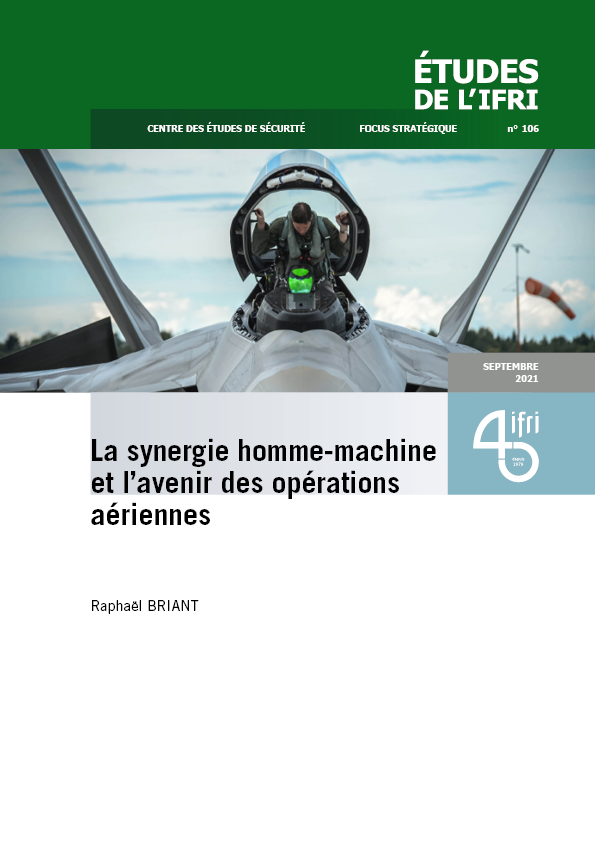Human Machine Teaming and the Future of Air Operations

The increasing autonomy and digitization of battlefields implies a re-examination of Man Machine Teaming (MMT). While Artificial Intelligence (AI) has significant benefits, the human cognitive system remains unique until this day. Nonetheless, as demonstrated by the “centaur” approach, man-machine teaming offers even greater potentials than the two working separately.
Man Machine Teaming’s operational gains are thought to be tremendous, but so are their challenges. As the systems grow increasingly autonomous, their interaction with humans gets more complex, with AI slowly transitioning from a tool-like role to that of a crewmember. To make the most of this new collaboration, the very conception of these new technologies needs to be rethought in order to focus their designs on humans. Allowing humans to effectively interact with systems that have varying degrees of autonomy is expected to give armed forces a new factor of operational superiority.
Numerous countries are now developing MMT military program. In France, the “future aerial combat system” or SCAF carries these new stakes in the field of military airpower – a field where man-system integration is old and where its potentials are great. From logistic to swarming in, from flight assistants to “cobots”, the possibilities of effective man-machine teaming are wide and they are already reshaping the field of military airpower.
This content is available in French : La synergie homme-machine et l'avenir des opérations aériennes
Related centers and programs
Discover our other research centers and programsFind out more
Discover all our analysesMapping the MilTech War: Eight Lessons from Ukraine’s Battlefield
This report maps out the evolution of key technologies that have emerged or developed in the last 4 years of the war in Ukraine. Its goal is to derive the lessons the North Atlantic Treaty Organization (NATO) could learn to strengthen its defensive capabilities and prepare for modern war, which is large-scale and conventional in nature.
"Iron Swords" A Military Analysis of Israel's War in Gaza
On October 7, 2023, Hamas' attack, dubbed “Al-Aqsa Flood,” caused a major shock and led Israel to launch the longest war in its history. Operation “Iron Swords” was notable for its unprecedented intensity, both in terms of the massive ground forces deployed and the firepower used.
Saudi Arabia’s Nuclear Temptations. Lessons Learned from Regional Instability
Saudi Arabia’s integration in the international arena and regional stability, notably through reducing its dependence on fossil energies, are crucial elements for the success of the Kingdom’s Vision 2030, the Crown Prince’s top priority. However, Mohammed bin Salman’s declarations in 2018 and 2021, indicating that “if Iran develops a nuclear bomb, we will follow suit as soon as possible”, combined with the recent strikes on key Iranian nuclear facilities, do not bode well for the future of the Kingdom, the region and the non-proliferation regime at large.
The Future of Air Superiority. Command of the Air in High Intensity Warfare
Air superiority, understood as control of the air, is a cornerstone of the Western art of warfare. It is a decisive condition, albeit not sufficient by itself, to achieve military victory, as it enables the concentration of air power toward the achievement of wider strategic objectives and protects other components from unbearable attrition levels. It is best achieved through the offensive use of air power in a joint effort to neutralize the enemy’s air power.













